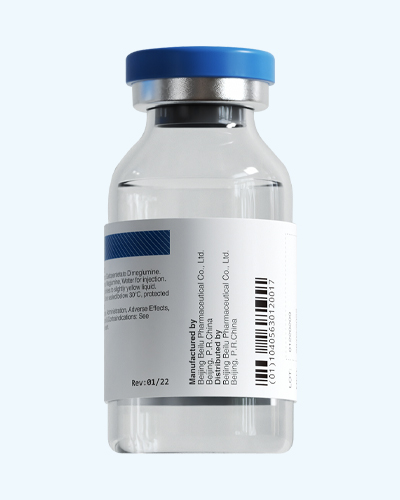Gadopentetate Dimeglumine Injection/API

Tootest
Since Gadopentetate Dimeglumine Injection was launched in 1992 by Beilu Pharma in China, it was highly recommended and accepted by the radiologist, and quickly occupied the market with its excellent quality and reasonable price. Up to now, linear gadolinium has been safely used for nearly 30 years, with excellent enhancement effects and few side effects. Bei lu also produces gadobutrol injection with high quality and reasonable price, contact us for more info!
Product name: Gadopentetate Dimeglumine Injection
Generic name: Gadopentetate Dimeglumine Injection
Type: Injectable Contrast Media for MRI, Linear Contrast Media
No.1 market share in China
Ingredients: Gadopentetate Dimeglumine
Specification: 10ml:4.69 g; 12ml:5.63 g; 15ml:7.04 g; 20ml:9.38 g
Posology and method of administration: Intravenous injection
Adverse reactions: See the details from the package insert
Shelf life: 36 months
Indication of Gadopentetate Dimeglumine Injection
Magnetic resonance imaging of the central nervous system (brain and spinal cord), abdomen, chest, pelvis, limbs and other human organs and tissues.
Precautions of Gadopentetate Dimeglumine Injection
1. Use with caution in patients with severe kidney damage, epilepsy, hypotension, asthma and other allergic respiratory diseases and those with allergic tendencies.
2. Take care to avoid the extravasation of the gadopentetic acid liquid during injection to prevent tissue pain.
3. The serum iron and bilirubin levels of some patients will increase slightly after medication, but they are asymptomatic and can return to normal within 24 hours.
4. Pregnant women and breastfeeding women should use it with caution. Animal experiments show that a small amount of medicine liquid enters the milk.
5. The effective enhancement time of Magnevist contrast is 45 minutes. MRI examination should be performed immediately after intravenous injection.
6. The remaining medicine liquid after one examination should not be used again.
7. When applying this type of MRI contrast media, follow the relevant safety regulations in magnetic resonance imaging.
8. GBCAs should be used with caution. When plain scan MRI cannot obtain the corresponding vital diagnostic information, GBCAs can be used, and the lowest approved dose is used as much as possible.
9. Gadolinium deposition
Current evidence shows that after repeated use of GBCAs, trace amounts of gadolinium can remain in the brain and other body tissues. Research reports have shown that multiple uses of GBCAs can increase the intensity of brain signals, especially in the dentate nucleus and globus pallidus. Currently, there are more reports about linear GBCAs and fewer reports about macrocyclic GBCAs. Animal experiments have shown that the amount of gadolinium deposited after repeated use of linear GBCAs is higher than that of repeated use of macrocyclic.
The clinical significance of brain gadolinium deposition is unclear.
In order to minimize the potential risks associated with gadolinium deposition in the brain, it must be used in strict accordance with the indications and approved doses. It is recommended to use the lowest approved dose that meets the requirement of diagnosis and perform a careful benefit-risk assessment and patient informed communication before repeated administration.

